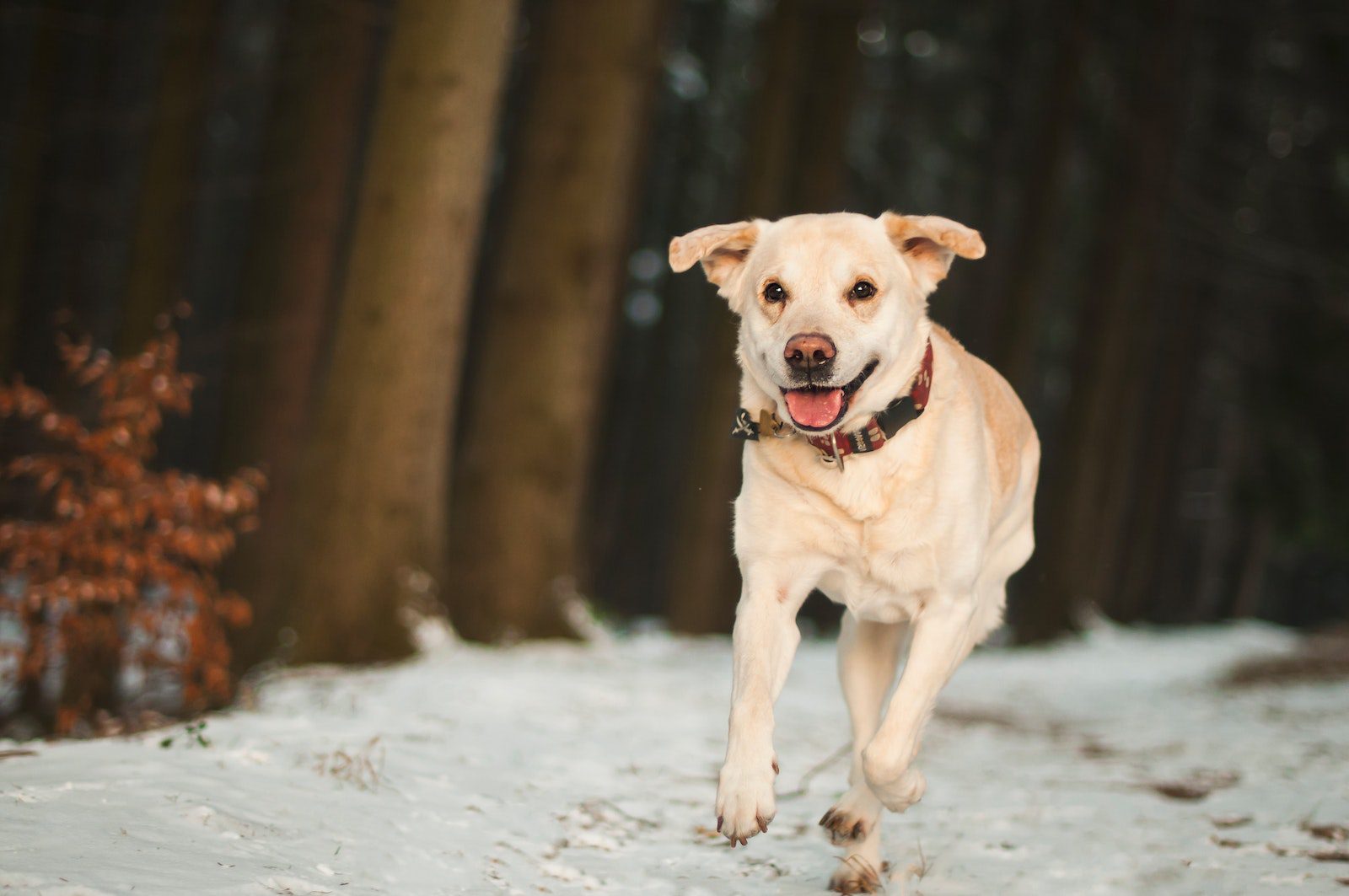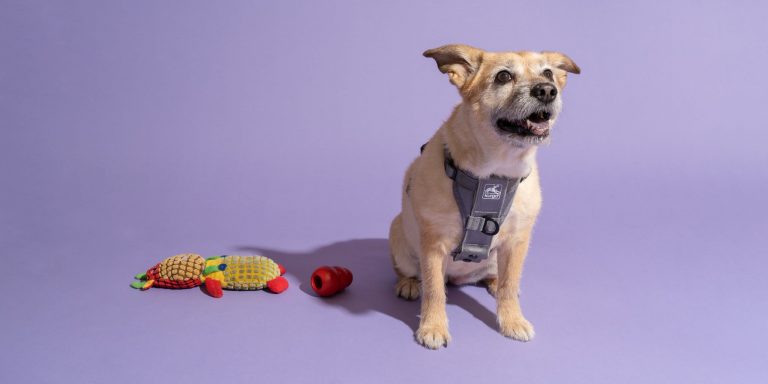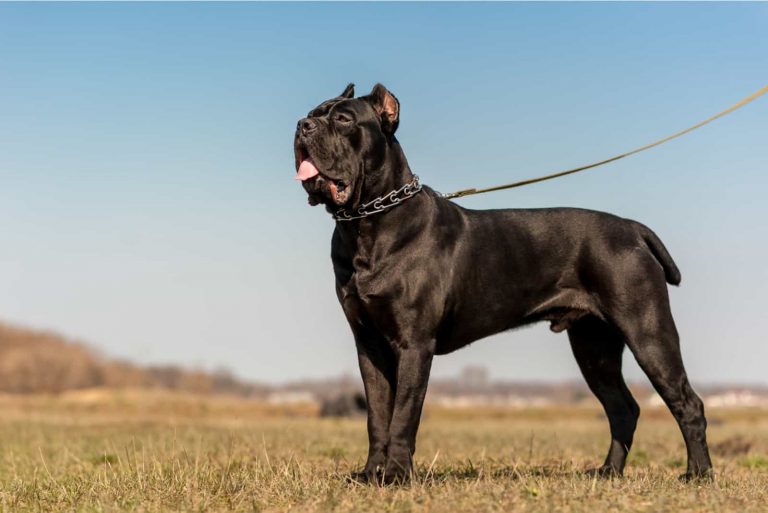With the winter holidays quickly approaching, it’s important for us to be aware of things that may harm our furry friends. Dogs love to smell and taste new things, especially fun ornaments and decorations that we bring out this time of year.
The smell of the chocolate pie or ham baking in the oven may also have them salivating and begging for table scraps. With friends and family visiting it can be difficult to make sure our dogs don’t get table scraps tossed to them.
Common Reasons for a Visit to the ER
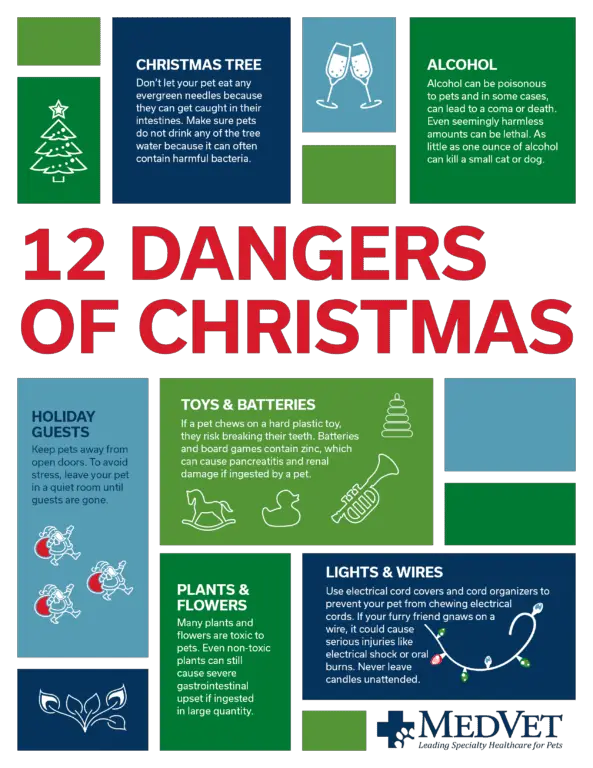
One of the most common reasons we see pets visit the emergency clinic during the holiday season is gastroenteritis (upset and inflamed intestines and stomach) or because they have developed pancreatitis (inflammation in their pancreas).
Dogs’ stomach and intestines are not used to breaking down meals high in fats, sugars, and sodium. So when they get a ham bone or some other table scraps during the holidays, they may love the taste of it initially, but soon after it can make them feel so sick they don’t even want to eat and can have vomiting and diarrhea.
Many dogs can be treated for gastroenteritis on an out-patient basis with medications to alleviate the pain, vomiting, and diarrhea. However, if your dog develops pancreatitis, they would more than likely need to be hospitalized for 1-3 days. So what can you do to prevent this from happening and having to disrupt your time with your family to take your dog to the vet (not to mention having to pay a high vet bill)?
Ways to Prevent This
Make sure all of your guests know ahead of time to not give any of their food to your dog, no matter how much they beg. Instead, provide them with treats or pieces of your dog’s own kibble that they can give to your pet.
If your dog is crate trained, have them eat their own food in their crate during lunch or dinner time with the family so they are not able to pick up any food that may drop on the floor. Additionally, make sure your trashcan is secure or emptied out often so your dog doesn’t try to knock it over or dig in it to find left over food or bones.
Here is list of some specific foods that are toxic to dogs and should always be avoided:
- Chocolate
- Onions
- Garlic
- Grapes
- Raisins
- Fatty foods
- Anything with bone in it
- Yeast dough
- Coffee
- Alcoholic beverages
- Sugar free gum with xylitol in it
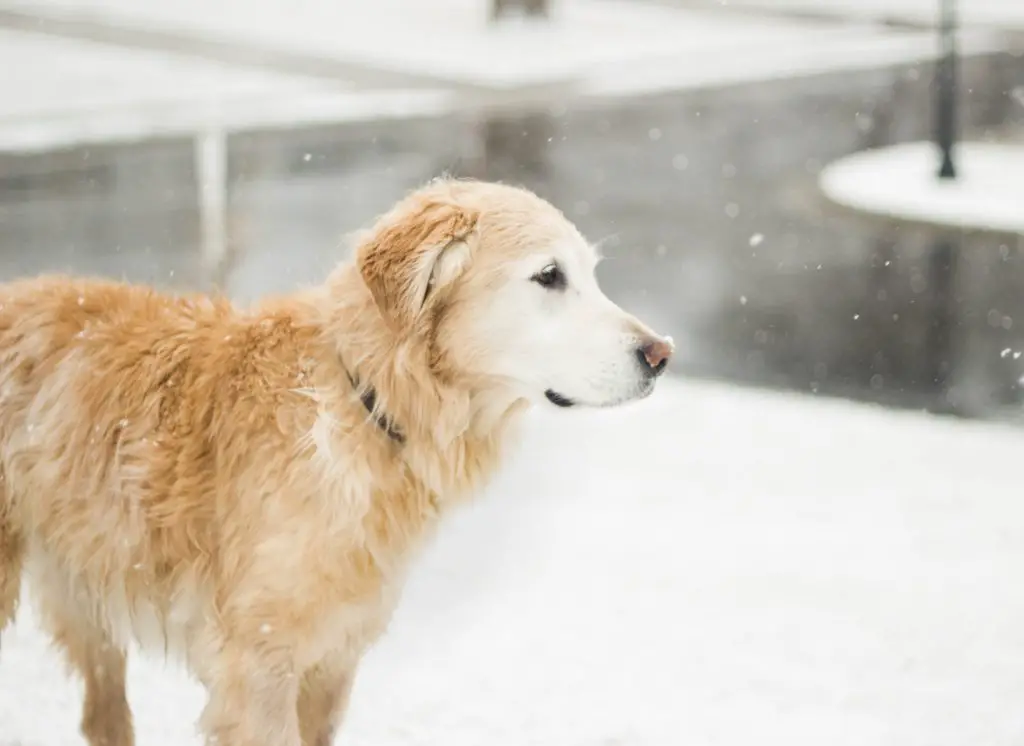
Household Hazards
Another common reason a dog may be taken to the vet during the holidays is if they ingest decorations, such as tinsel, ribbon, or ornaments. Oftentimes these objects can get stuck in their intestines, requiring them to need exploratory surgery in order to remove the object. Sometimes this can lead to life-threatening situations if the foreign object has caused severe damage to the intestines.
If your dog is a chewer, it can definitely be difficult to try to prevent him or her from chewing on and swallowing these things. Try as best you can to keep holiday decorations cleaned up off of the floor. If you aren’t able to monitor your dog to make sure they don’t eat any of the decorations, try to keep them in their crate when not being watched.
Alternatively, you can use a basket muzzle on them to prevent them from eating things they shouldn’t. The benefit of the basket muzzle is that they can still drink water, pant, and feel fairly comfortable. They just can’t chew on things.
Other items your dog may be interested in trying out are the various holiday plants such as mistletoe, holly, and poinsettias. If they eat too much of them, this can cause irritation along their intestinal linings, leading to vomiting and diarrhea.
Finally, make sure any antifreeze, ice melt, and rat poison are stored in a secured location and clean up any spills or leaks right away. Antifreeze tastes very sweet and only a small amount needs to be ingested to be lethal.
It can cause kidney failure, seizures, and even death. Ice melt can be very irritating to a dog’s paws and, if ingested, it can cause irritation in the mouth, vomiting, and depression. Rat poison tastes good to dogs, though not as good as antifreeze. Depending on the brand of rat poison, it can cause either bleeding abnormalities or seizures and severe brain changes. Regardless of the type of rat poison ingested, they can each be fatal if not treated right away.
Prevention is Key
We are all very busy during the holidays, but the more vigilant we can be to prevent our dogs from ingesting these substances, the less stressful our holiday will be and the more we can enjoy the season to its fullest. Happy Holidays!
If you are concerned your dog ate something potentially toxic or hazardous, you can always contact ASPCA Animal Poison Control Center at 1-888-426-4435.
Other Useful Resource: Ask Vets for help online

